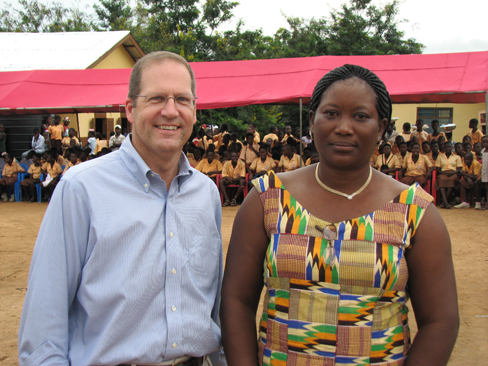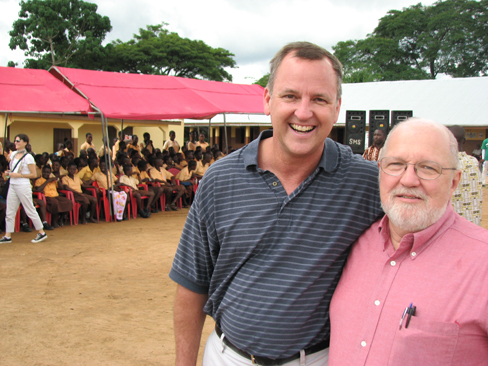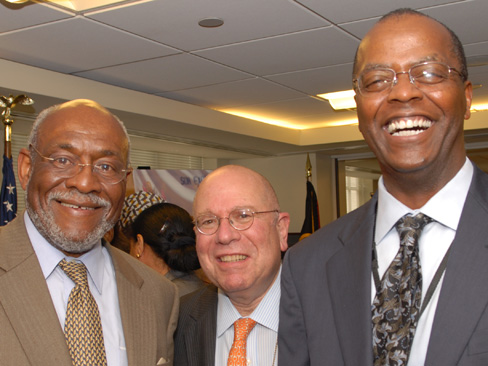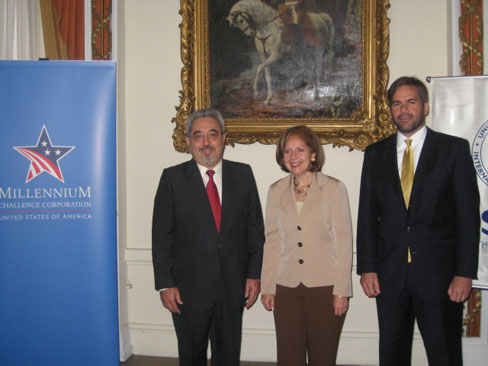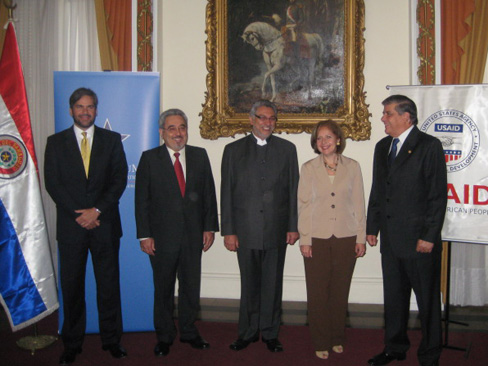Why MCC Matters to AGOA
August 13, 2009Blog entry by Jeri Jensen, Managing Director for Private Sector Initiatives
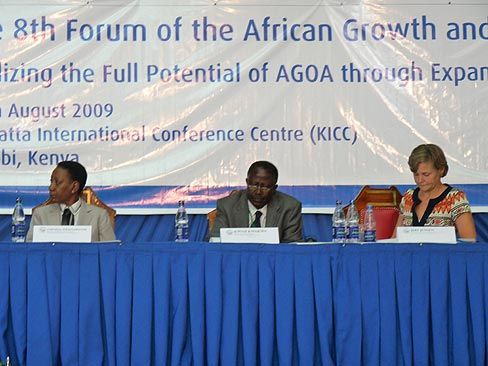
Manager of U.S. Department of Transportation’s Safe Skies for Africa Programs Cornelia Wilson Hinter, MCC Managing Direct of Private Sector Initiatives Jeri Jensen and General Manager-Engineering of Ghana Ports and Harbors Authority Kwasi Kwakwa participate on a panel discussion on regional trade integration.
Last week, the United States Government joined African small business leaders, NGOs, civil society stakeholders, and representatives of the Kenyan government for the 8th annual African Growth and Opportunity Act (AGOA) forum in Nairobi, Kenya.
The three-day forum, including parallel private sector and civil society meetings, featured participation by two MCC Board members, Secretary of State Hilary Rodham Clinton and United States Trade Representative Ambassador Ron Kirk. Accompanying the Secretary on the trip were Members of Congress – Jim McDermott, Donald Payne, Nita Lowey – as well as Agriculture Secretary Tom Vilsack. AGOA, for those less familiar with the trade policy world, represents bipartisan legislation enacted in the late 1990s and signed by President Clinton to help address the fact that the recently-enacted Uruguay Round of multilateral trade negotiations did little to benefit developing countries. The idea behind the act was to stimulate trade with Africa by giving most African countries duty-free treatment, with the ultimate purpose of stimulating U.S. investment in Africa and helping include Africa in the global economy.
MCC partners with countries that identify the greatest constraints to their development and establish their priorities to create sustainable economic growth. While each country’s grant is unique, most MCC partners place a high priority on increasing competiveness and facilitating regional and international trade. In fact, trade capacity building is a critical part of the U.S. Government’s AGOA contribution. This promotes economic growth through trade and improves the linkage between trade and development by assisting countries to develop physical, human, and institutional capacity necessary to take full advantage of trade opportunities and, most important, to increase growth and reduce poverty. In 2008, MCC was the largest U.S. Government source of trade-related funding for sub-Saharan Africa, obligating nearly $1 billion.
MCC – with 70 percent of its portfolio in Africa, almost half dedicated to infrastructure – is already undertaking a number of projects that support AGOA’s objectives in various ways.
- MCC is now working with 19 countries in Africa, developing or implementing compacts or threshold programs;
- MCC partner countries are a natural focus to take advantage of AGOA because they are already undertaking reforms to attract investment;
- MCC could be “the other half of the equation” to go hand-and-glove with AGOA preferences because MCC resources are already dedicated in that direction, with $2 billion in roads or ports to connect producers to markets; a half a billion in credit facilities to stimulate business enterprises; energy investments to facilitate greater production and exporting opportunities; an investment in hydroelectricity to support textile production in Lesotho;
- Sixty-four percent of MCC’s portfolio is related in some way to agriculture productivity, and agriculture is the area where AGOA’s trade preferences have the greatest potential;
- MCC is one of the few donors that invests in both agriculture and infrastructure in a major way
- MCC is placing greater focus on demand-driven strategies that connect beneficiaries to global markets, in product areas that could potentially also benefit from AGOA.
Ultimately, MCC is realizing the full potential of AGOA by not only expanding trade and investment opportunities but also promoting sustainable development and good governance.
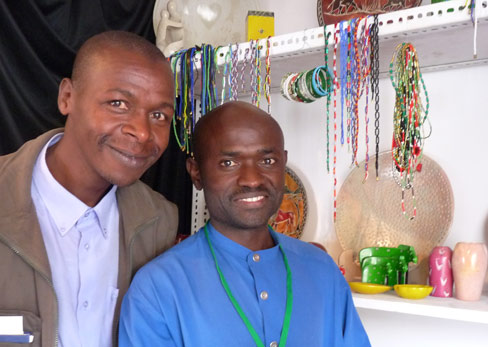
Kenyan entrepreneurs at AGOA’s exhibition area featuring their traditional handcrafted soapstone carvings, tableware and refined beadwork.



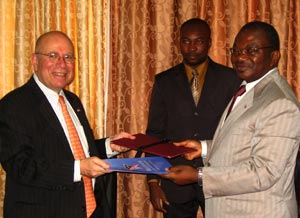
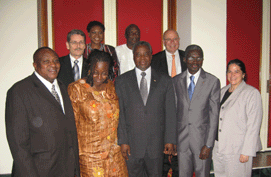
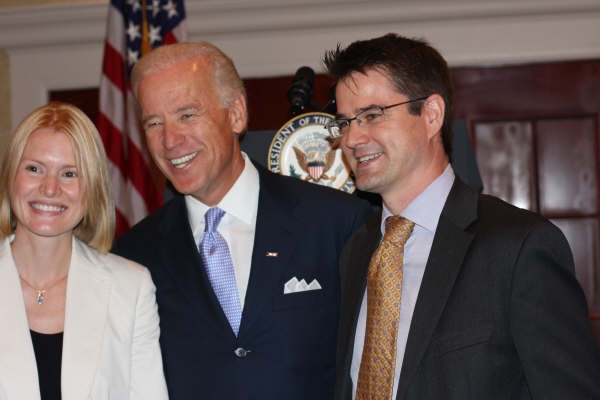

 Santa Catarina on Santiago Island has always been a municipality with great cultural and economic potential. Its full potential, however, has gone underdeveloped, given how difficult it is to access it various communities. This has long been the reality for the seven major communities along the way from Assomada to Chã de Tanque to Rincão, a way that has seen its share of notable landowners, fishermen, and adventurers who used the Port of Rincão to develop Cape Verde’s economy.
Santa Catarina on Santiago Island has always been a municipality with great cultural and economic potential. Its full potential, however, has gone underdeveloped, given how difficult it is to access it various communities. This has long been the reality for the seven major communities along the way from Assomada to Chã de Tanque to Rincão, a way that has seen its share of notable landowners, fishermen, and adventurers who used the Port of Rincão to develop Cape Verde’s economy.